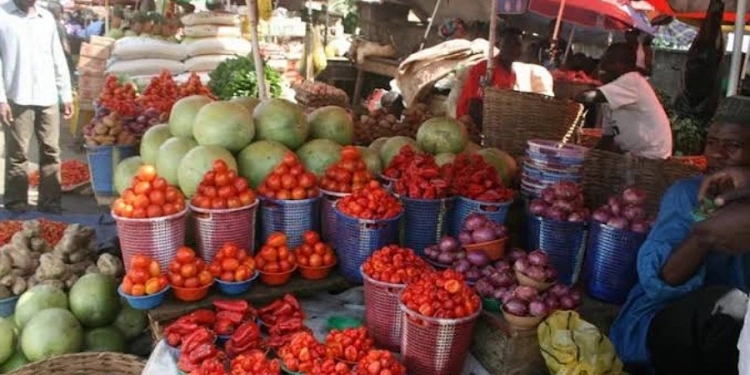Market Price: Pepper Surges 100%, Egusi Soars Amidst Mixed Signals in Lagos
Lagos, Nigeria – March 20, 2025
Shoppers and traders in Lagos are grappling with a rollercoaster of food prices as the cost of pepper has skyrocketed by 100% and egusi (melon seeds) has seen a dramatic leap, even as other staple foods offer a glimmer of relief. The latest market survey conducted by local analysts in four key Lagos markets—Mushin, Oyingbo, Mile 12, and Daleko—paints a picture of volatility, with mixed signals leaving consumers and vendors alike uncertain about what’s next.
According to the March 2025 survey, the price of a medium bag of pepper has surged from N28,000 to N65,000 in just a month, marking a staggering 132% increase, while a large bag now sells for N75,000, up 50% from N50,000. Traders attribute this sharp rise to supply disruptions from northern Nigeria, where transportation costs have spiked due to fuel prices and adverse weather conditions affecting harvests. “Pepper is like gold now,” said Mr. Sodiq, a vendor at Mile 12 Market. “The trucks aren’t coming as often, and when they do, the costs are passed on to us.”
Meanwhile, egusi, a staple ingredient in Nigerian soups, has also leaped in price. A bag that cost N257,000 in February now ranges between N300,000 and N320,000—a 24.5% jump. This increase has baffled some traders, given that egusi is locally grown, but they point to broader economic pressures, including inflation and rising fuel costs, as culprits. “It’s not just about supply; everything is more expensive to move,” said Mrs. Amaka, a trader in Mushin. “Even what we grow here feels out of reach.”
The market isn’t all doom and gloom, however. Prices for staples like rice, vegetable oil, onions, tomatoes, and wheat meal have seen slight declines, offering a modest reprieve for households. A 5-liter keg of palm oil, for instance, dropped 25.6% from N12,500 to N9,300, while vegetable oil fell 19.35% to N12,500 from N15,500. Tomatoes, buoyed by a bumper harvest, have also eased in price, bringing cautious optimism to some shoppers. “I can afford a little more stew this week,” said Funmi Adebayo, a mother of three shopping at Oyingbo Market. “But then I see the pepper and egusi prices, and it’s back to square one.”
This mixed bag of price trends has left Lagos markets in a state of flux. While the dip in some essentials has been welcomed, the steep hikes in pepper, egusi, and other commodities like frozen fish (up 87.5% for Titus) and ogbono (up 12.73% to N620,000 per bag) are stoking frustration. Vendors report a tug-of-war between maintaining profit margins and keeping goods affordable. “Customers complain, but what can we do?” asked Ms. Adelani, a frozen food seller at Daleko. “The cost to get these items here is choking us too.”
Analysts suggest that Nigeria’s persistent economic challenges—currency fluctuations, insecurity affecting farming regions, and logistical bottlenecks—are driving these erratic price swings. The pepper shortage, in particular, echoes past seasonal fluctuations, but the scale of this increase has raised eyebrows. For egusi, the price surge despite its local production hints at deeper supply chain issues that may not resolve soon.
As Lagosians adjust to this unpredictable market landscape, reactions range from resignation to cautious hope. “It’s a scale that never balances,” Mrs. Amaka remarked, echoing a sentiment felt across the city’s bustling markets. With no clear end in sight to these mixed signals, consumers are left to navigate a delicate balance of relief and sticker shock—one pepper pod and egusi seed at a time.
